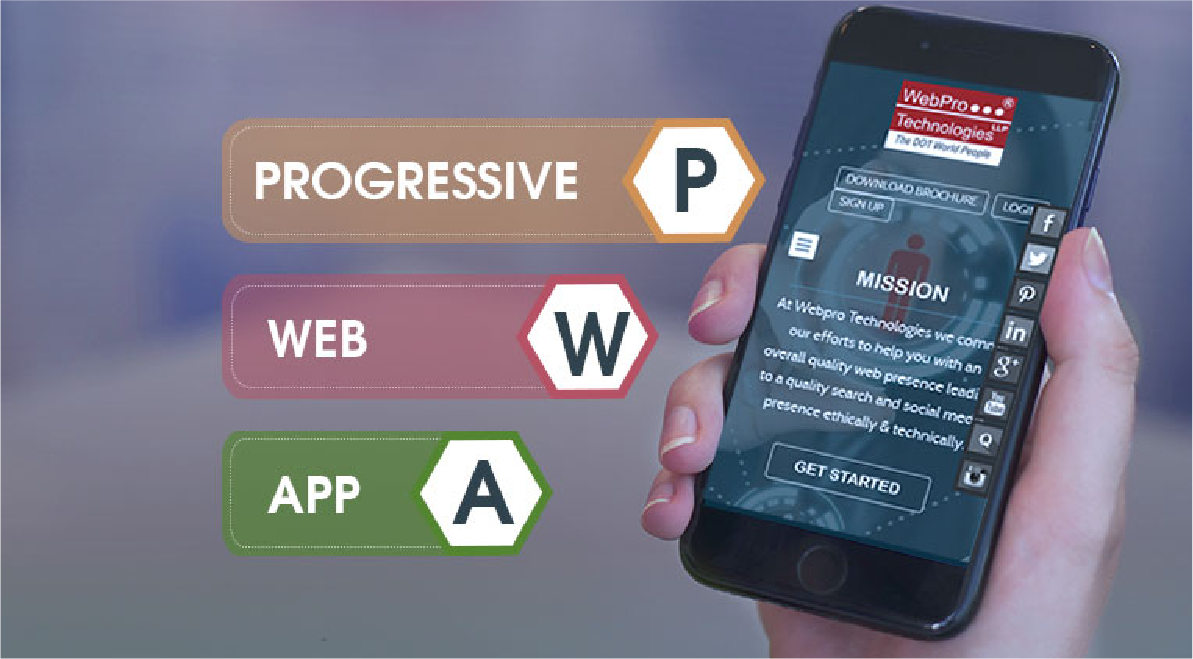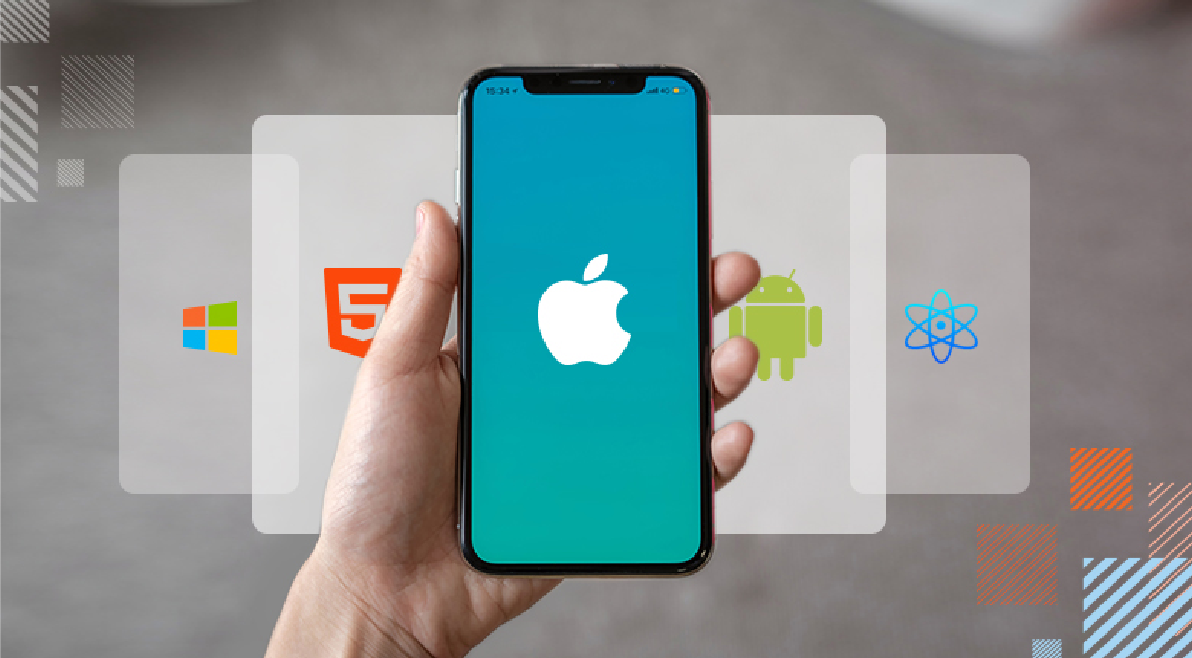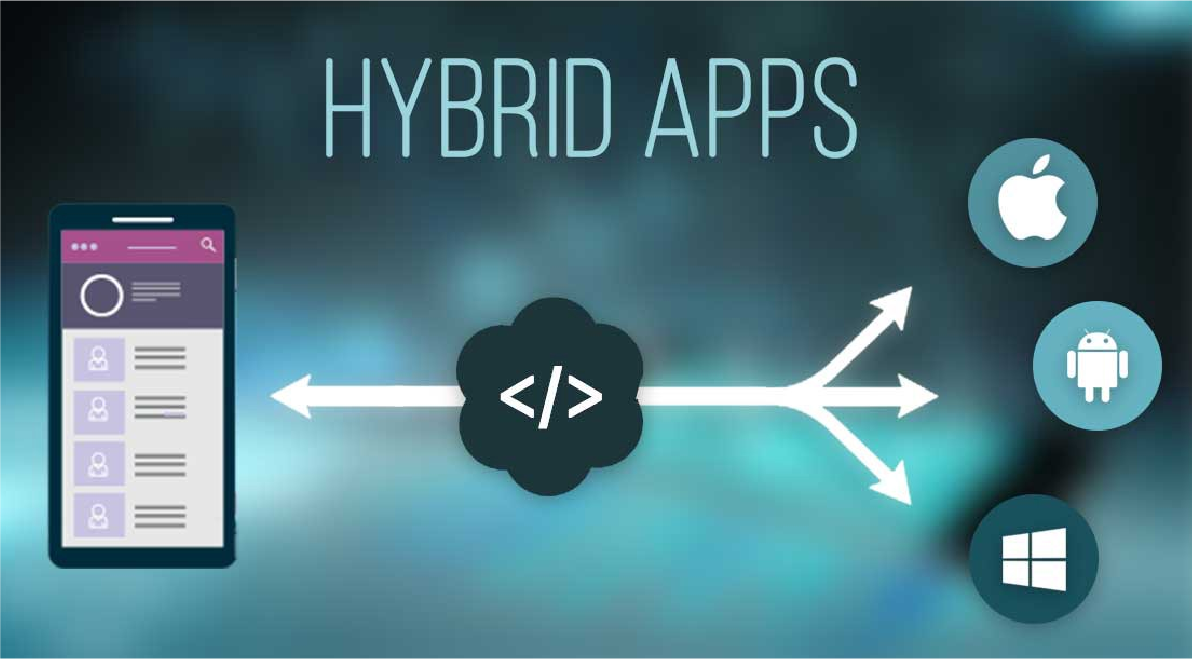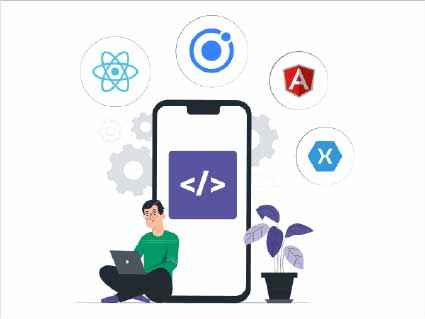Do you want to build a native mobile app, hybrid app, or a progressive web app? The answer is
not always simple. In the past, mobile development was mostly about native apps. However, with a
shift to more internet-connected devices and applications being accessed from multiple
platforms, progressive web apps have become increasingly popular in recent years.
In this blog post, we will compare PWA vs native apps vs hybrid apps to help you decide which
option is right for you.
I am sure you all have downloaded the apps from the app store or google play store. There is
also a high chance that you are using Facebook and Twitter, if that’s the case then you already
are using a native app.
In some words, native mobile apps are those apps that can be downloaded from the app store, i.e
Google play store, App store, or Galaxy apps. However, Google is creating a technology that will
accept PWA into the Google play store.
Native app development work on Android or iOS, but do not work together. I know what you might
be thinking, some native apps such as Facebook and Twitter work on iOS both, but let me tell you
that both these apps have uniquely coded versions for both platforms which enables them to work
on iOS and android both.
Whether you’re a large corporation or small business, you should consider investing in a mobile application. Mobile applications have expanded beyond comprehension, and almost every company has one now. Apps can help your company in all sorts of ways, but they can also be detrimental if they aren’t created properly. There are many considerations to consider when having a mobile app developed; it’s not something that should be taken lightly, especially since there are companies out there that will try to rip you off.
For Android: Java or Kotlin
For iOS: Swift or Objective-C
A cross platform app is just like a native app and that is why people often mistake it for a
native app. The major difference is that it shares the same codebases for all platforms. This is
what makes it different from a native app.
t uses a technology framework like React Native, which makes it function on iOS and Android.
Cross platform apps examples:Facebook Ads Manager and Zipcar.

If you are aware of Twitter Lite or Google Maps Go, then you already know some examples of PWA.
A progressive web app is a fairly new term for people, but you must have used it or are using it
that’s for sure, without even knowing it.
Progressive web apps are web apps that tend to look like native apps having functionalities like
working offline, working full screen, and sending push notifications. They resemble a mobile app
because they can be accessed through a browser and can access your hardware features like using
a camera or track your location etc.
Working under HTTPS
Serving a web app manifest
Using Service workers

We have included hybrid apps in this blog because hybrid app development is basically a
combination of native app and web apps. It uses CSS, HTML, Javascript, or other modern languages
like Flutter. It can be downloaded from the app store and can work on all platforms i.e iOS and
Android.
hybrid mobile app examples: Instagram and Gmail.

Now comes the interesting part, what’s the actual difference between a progressive web app, a native app, and a hybrid app?
Native Apps are specific for the device and are built accordingly. This makes it easier to use, intuitive, and gives users a seamless experience.
Native Apps comes with options that allow developers to access the operating system that enables native apps to run smoothly without
Coding for native apps is simple and streamlined because the developer is focusing on one platform at a time and not using one codebase across multiple platforms.
Not every developer can work on building native apps, you need to find a team of experts that specialize in android and iOS development.
f you want to build an app for android and iOS both, then you will need separate development for both platforms which is time-consuming.
PWA uses standard website coding which makes them fast to build, maintain and update.
Only one codebase is required for all platforms which makes the development process easy, less time-consuming, and cost-effective.
PWA can be easily accessed offline. An API known as service workers uses the data cached upon the last session from the internet and makes it available online.
It follows the HTTPS protocol which makes it very secure.
As mentioned earlier PWA are built faster. Like Native apps that require approval from Appstore or marketplace, PWA does not require approval and can be released directly to the market.
PWA is accessible through any browser, so it can be used on any device easily. Users can simply use your app as a website or install it, it’s up to them.
A progressive web app is actually a webpage, which means that search engines can crawl it, and with SEO leveraged properly you can generate massive traffic.
Complex code interpretation makes the phone work hard and drains a lot of battery.
When a web browser updates or changes it causes changes in the PWA because of which you will need to make changes or update your app.
PWA may look like a native app but they cannot access the device’s native features.
Users are used to searching for apps on the app store and google play store, but PWA is not available there.
A single code development speeds up the process of building and maintaining hybrid apps.
Hybrids apps do not require developers to learn multiple complex technologies to create hybrid apps. This makes it easier and less time-consuming.
Hybrid apps give the provision of creating apps on both android and iOS. This gives access to a broad audience. So reaching both platforms can give you an added advantage.
User experience is not as good as native apps, hybrid apps are also slower as compared to native apps.
Hybrid apps are good when there is minimal customization required. The more the app requires customization, the more it will require native coding which makes development more complex and time-consuming.
When new features are released natively, the cross-platform framework needs time to develop compatibility.
Challenges may arise because the app isn’t specific to an operating system, additionally, you have to be dependant on a third-party platform for the deployment of the app’s wrapper

As discussed earlier, Native, PWA, and Hybrid apps have their own pros and cons. But you have to
consider some details when you are choosing any one of the types of app to work with.
Do you have a tight deadline? Or is your timeline flexible?
Will your app have native features?
Are you willing to put in money to get the full range of features or are you restricted to a constrained budget?
Will you use your in-house resources or outsource the development?
You need to know what market are you planning to market, what your users need, do they need a PWA or
a native app?
Cost should not be the primary factor for choosing a development method. The user experience is the most important thing. But still, the cost is one of the most important factors.
Hybrid apps do have lower upfront costs but these apps are prone to bugs, which can end up costing you a lot of maintenance money. And when it comes to the latest features hybrid apps can become a money-guzzling app.
Progressive web apps may not be as expensive as native apps, the problem with PWA is that sometimes it fails to meet user’s expectations on providing a seamless experience.
Whatever approach you choose you should bear that in mind it’s all about user experience.
Remember the following points:
You want your content to be easily available and accessible to your API infrastructure
A mobile app should not be a carbon copy of your website, rather an extension of who you are as a brand
Know your user and market to stay ahead of the curve so you can meet market needs
It’s difficult to choose from native, PWA, or hybrid apps but there is no definite answer when choosing an app. It all depends on your business needs, goals, and purposes. But once you get to know all these apps then you can make an informed decision easily.
No app is superior to others, each has its own pros and cons.